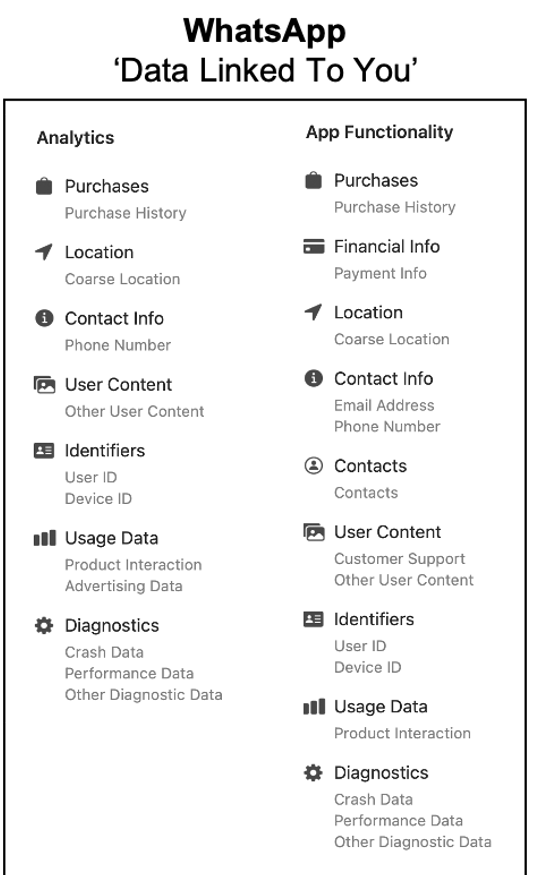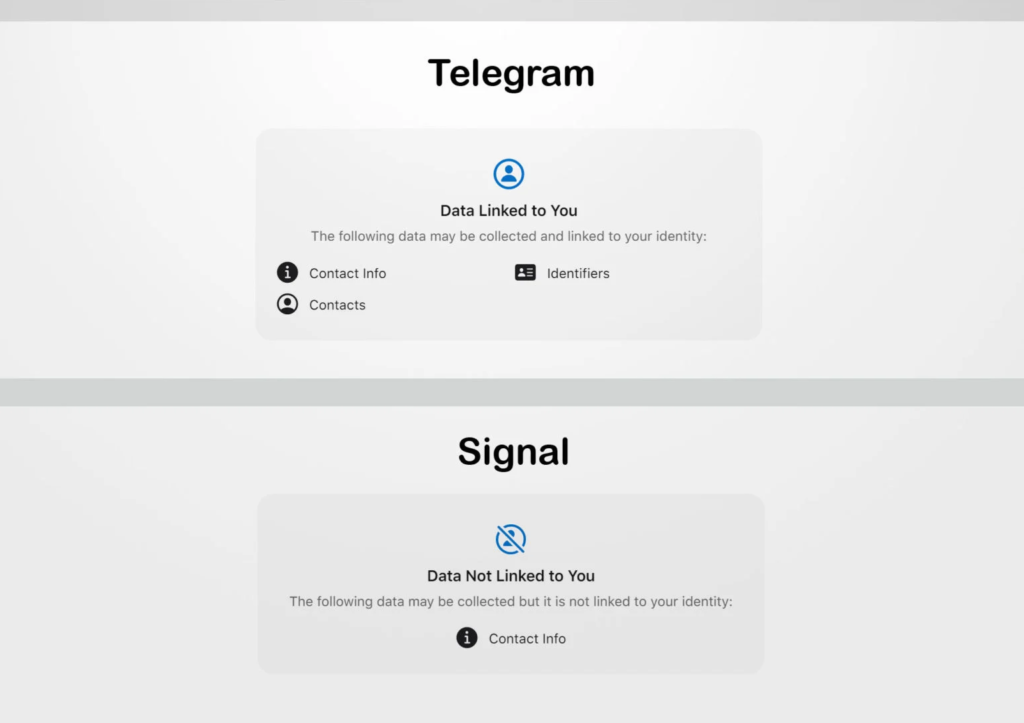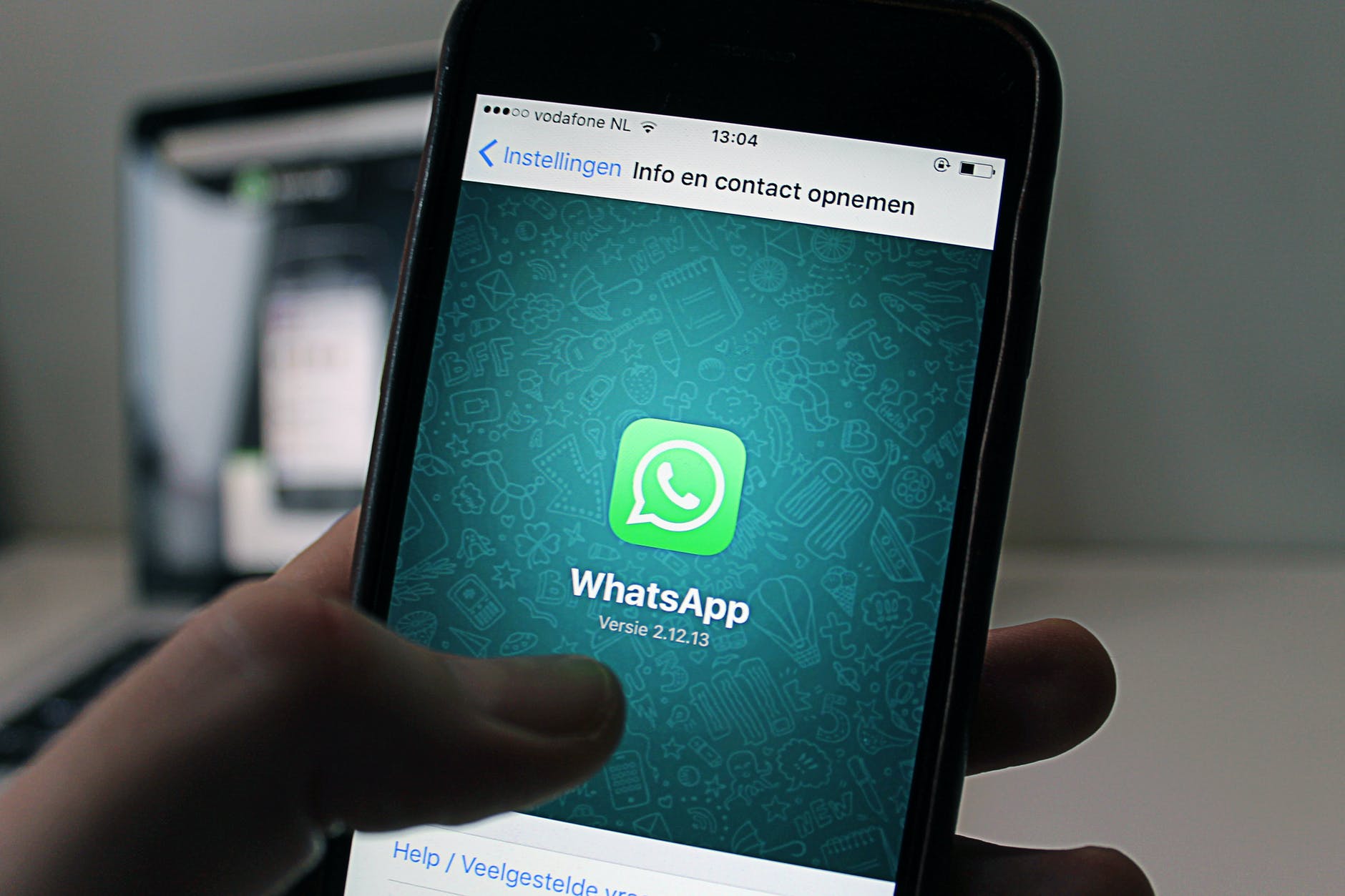Last Updated on 2022-07-08 by Joop Beris
There are many instant messaging solutions available these days. A quick browse of the Google Play Store or the Apple store gives me Telegram, WhatsApp, Discord, Facebook Messenger, Signal, Viber, Google Meet and a slew of others. So which do you choose when you care about privacy and data security? For the purpose of this article, I’ll focus on the three that I have considered personally and how I made my choice between them. Which will win: WhatsApp, Telegram or Signal?
Pro
There’s no doubt that in terms of market share, active users and number of downloads, WhatsApp is the king. With so many active users, you’re almost guaranteed to find family, friends an co-workers on the messaging platform. That only helps to increase its popularity. Instant messengers are no fun if the people you want to talk to aren’t there. WhatsApp offers end-to-end encryption by default, so your messages are always encrypted.
Con
If you care about data security and privacy (and you should), there’s of course one very big issue with the use of WhatsApp. In February of 2014, Facebook acquired WhatsApp. Facebook seems to be the antithesis of privacy. Over the years, numerous privacy concerns have been raised about the use of Facebook, such as:
- Facebook invades people’s privacy by tracking them across the internet, even if they don’t have a Facebook account
- The company actively lobbies against consumer privacy protection, such as the European GDPR
- They also track a user’s location, even if they’ve disabled this in the Facebook app
- They’ve also shared private messages and contact details with other companies and organisations without user consent
- Facebook participates is the US PRISM program
That’s just the tip of the iceberg but more than enough to make me avoid WhatsApp. Even more so because WhatsApp also collects extensive metadata about its users.

Telegram
Pro
Telegram is another popular instant messaging service and one that has a reputation for being secure. The reputation is so strong that when WhatsApp shot itself in the foot in January 2021 by changing their privacy policy, people flocked to Telegram en masse. Telegram offers easy to use software and even offers a desktop version of its client, something that WhatsApp doesn’t. It now purports to have over 500 million active users. But are those users really enjoying data security and privacy when using Telegram?
Con
In terms of encryption, Telegram is actually a step back when compared to WhatsApp. While messages shared using WhatsApp benefit from end-to-end encryption (meaning only sender and recipient can read them), on Telegram this is not the case by default. Users have to enable the “Secret Chat” function manually. If they don’t, messages are encrypted between their device and the Telegram servers and between the Telegram servers and the recipient but can be accessed from the Telegram servers. Is that bad? Well, it depends on whether or not you trust Telegram. You may want to be careful what you share if you don’t have secret chat enabled.
There are some more concerns when it comes to the use of Telegram. The MTProto protocol that Telegram relies on, is closed source and has not been fully vetted by security experts. This leaves some questions as to how secure it really is. Telegram announced as far back as 2014 that they’d eventually release all source code but so far this hasn’t happened.
There is an issue where self-destructing messages don’t actually self-destruct. The data is never actually deleted. Telegram fixed this issue in a later release but such a mistake reveals a possible lack of attention to actual security.
Finally, Telegram also has something of a problem with its public image. The service houses questionable content such as teen (and child) pornography, jihadists, extreme right wing propaganda and white supremacy groups. As a regular user, you likely won’t encounter any of that but you may ask yourself if you want that kind of association with your use of Telegram.
Signal
Pro
Signal is the third and final contestant in this article. It has the least users out of the three. So few in fact that it hardly ranks in Similarweb’s list of most popular messengers. A limited amount of users is a serious drawback for a messenger but the number of users on Signal grows every year. Like Telegram, it is available on multiple devices and offers a desktop version. Signal is fully open source and so is the Signal protocol, which security experts say is secure. So secure in fact, that the protocol is also used by WhatsApp, Facebook Messenger, Skype and Google Allo. Signal is owned by the Signal Technology Foundation which means it is not run for profit. This also means that Signal has no incentive to sell information about its users.
Signal focuses on security and privacy by design. End-to-end encryption is always on, even for group chats and you can’t turn it off. Unless you send the message as a standard SMS from the Signal app but what is this, 1992? It also features advanced cryptographic measures to ensure that messages can’t be read now or in the future.
Con
A major drawback for Signal is that there are a lot less people who use it. Until fairly recently, mainly people with an active interest in privacy and security used it but this is changing. Older Signal software was pretty clunky and unattractive but this improved a lot now that the clients had a chance to mature.
Another drawback is that Signal requires a phone number for initial account creation. While this isn’t different from many other instant messaging apps, it is a concern for those who are really concerned about remaining anonymous.

Conclusion
I’m the first to admit that this isn’t an objective, conclusive or even complete review. I hope though that it demonstrates that if you care about your data security and your privacy, there really is only one choice you can make here and that is Signal. It stands head and shoulders above the other two when you look at these two criteria. True, less people use it and that makes it a less popular choice. But with more users joining as global privacy awareness grows, I hope that won’t be an issue for long. To do my bit to help Signal grow, here is where you can get Signal today!
Say ‘Hi!’ to me on Signal when you get there!
Update: In a recently released document by the government transparency organisation Property of the People from the USA, the organisation reveals an FBI document that shows what data the FBI can obtain from many instant messaging providers. Here too, Signal is the clear winner. It can only provide the date and time a user registered and when the user last connected with Signal servers. In case the document disappears from their site, you can download it from here too.
Please note that I am not affiliated with Signal, nor do I get paid for this article.

